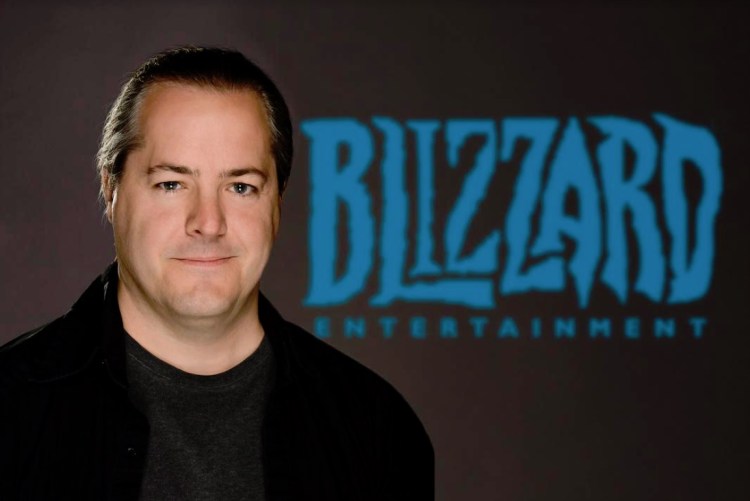J. Allen Brack has been president of Blizzard Entertainment for just a few weeks. But I wouldn’t call him a whippersnapper, as he has worked in games for 24 years and he’s a black belt in a Korean martial art, Tukong Moosul. Brack took over from Mike Morhaime, who cofounded Blizzard in the 1990s and propelled the Irvine, California-based company to the top of the video game industry on the strength of hits such as World of Warcraft, StarCraft, Diablo, Hearthstone, and Overwatch.
In the crazy world of angry gamers, Morhaime stood out as a voice for reason and kindness. At a games industry gala, he thanked me for 25 years of game industry coverage. He engaged with fans through the company’s annual BlizzCon event and occasional speeches. During the height of the Gamergate controversy in 2014 and afterward, Morhaime advocated kindness to gamers and those who make games.
Brack admired those qualities in Morhaime while working for more than 12 years at Blizzard, and he hopes to maintain the high standard for quality. Late this week, he’ll face the fans at Blizzard’s annual Blizzcon fest in Anaheim, California, where he’ll have to show his gamer cred.
Brack joined Blizzard in 2006, and he was the executive producer for World of Warcraft, which is still the No. 1 subscription-based online role-playing game in the world.
June 5th: The AI Audit in NYC
Join us next week in NYC to engage with top executive leaders, delving into strategies for auditing AI models to ensure fairness, optimal performance, and ethical compliance across diverse organizations. Secure your attendance for this exclusive invite-only event.
Under Brack’s direction, World of Warcraft still entertained millions of players worldwide and received a steady stream of substantial content updates, including multiple expansions that rank among the fastest-selling PC games of all time. Brack has also led all philanthropic initiatives associated with World of Warcraft, resulting in Blizzard’s donation of millions of dollars for important causes such as disaster relief and children’s healthcare.
Brack also held multiple roles at Origin Systems, working on the Wing Commander franchise, and then at Sony Online Entertainment, working on Star Wars: Galaxies (an MMORPG like World of Warcraft). I talked with him about his new role and how he hopes to continue Blizzard’s legacy and make awesome games at the same time.
Here’s an edited transcript of our interview.
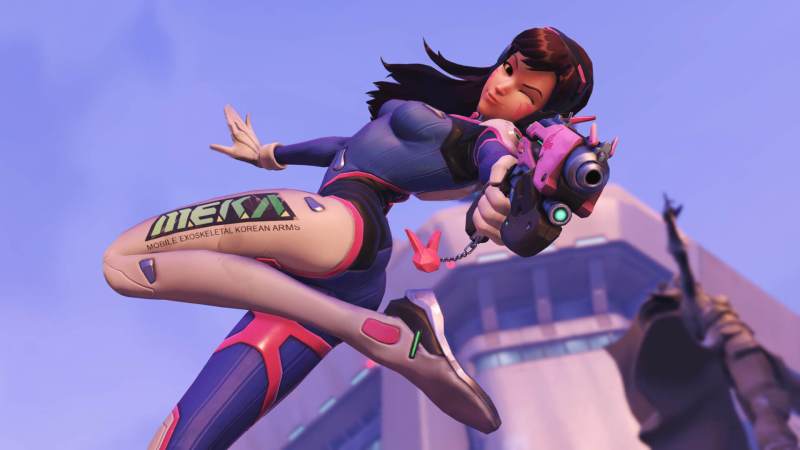
Above: D.Va’s ultimate isn’eeeeeeeeeeeet the most annoying nuke in Overwatch.
GamesBeat: How did you become a black belt in Korean martial arts?
J. Allen Brack: Great question. My previous life was a game studio in Austin, Texas. I just sort of randomly wandered into a studio that was very close to the office. I’d seen it for a couple of years. I watched one of the classes. It was a very traditional Korean martial art. The founder of that style had grown up in a temple. He was the very–almost like a movie type of thing, where you have the recluse who grows up in the temple and then comes to America and starts a martial arts studio. That’s exactly what happened. I did that pretty intensely for more than five years.
GamesBeat: Has that come in useful at Blizzard at all?
Brack: [Laughs] It tends to be much of a talking kind of culture, as opposed to a martial artist type of culture. It’s mostly been good for me just through the discipline and the stillness, the ability to focus. That’s the biggest thing I took away from my martial arts training.
GamesBeat: How many years have you been at Blizzard now?
Brack: It’ll be 13 in January.
GamesBeat: That’s the majority of your working life in games, then?
Brack: It’s about half. A little more than half, actually. This past October I crossed my 24th year in the games industry.
GamesBeat: It’s interesting that you’ve wound up in this position. Did you have any challenge going from working inside the company, usually on one game, and then elevating above that to look at the whole company, at what’s good for the company across a bunch of games?
Brack: One of the things I think is part of the special magic, or one of the parts in the secret sauce at Blizzard, is the way we think about Blizzard as of a higher import. By that I mean, a lot of times — there’s always resource contentions. There’s always, “Hey, this person is good. What team should they go to?” Our eyes are always bigger than our stomachs. The things we want to do are always bigger than the things we can do.
One thing we’ll cauterize around is, what’s the right thing for Blizzard? In my previous life, if I’m in a conversation with some other team and we’re having resource contention, or deciding what the right thing is for people, or what the right priority is — what’s the right thing for Blizzard? When you elevate that, the right decision becomes a lot easier to understand. There’s this thought that everyone serves Blizzard. Everyone is working for the betterment of Blizzard.
I worked on World of Warcraft. I worked on another game as well. But really the, most important thing was, what is the right thing for Blizzard? That’s built into a lot of the cultural decisions we make.
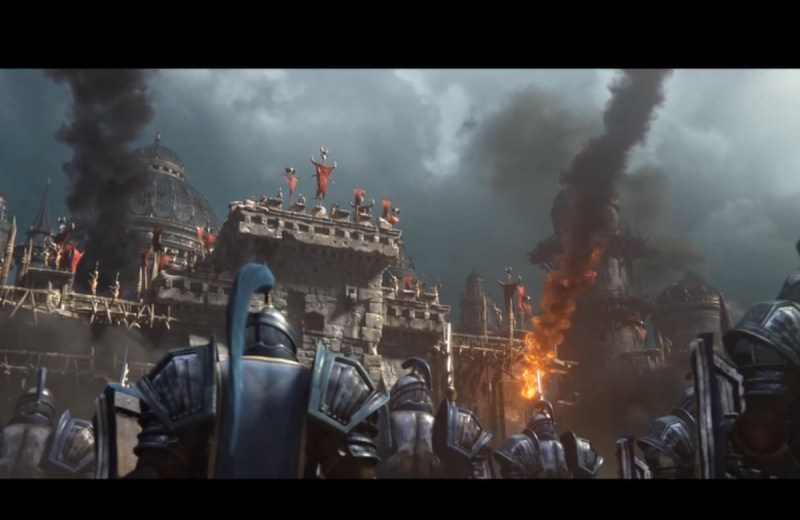
Above: World of Warcraft: Battle for Azeroth.
GamesBeat: Sounds like an real-time strategy game.
Brack: [Laughs] Well, that’s where our roots are, for sure.
GamesBeat: If you had to explain what kind of culture Blizzard has, how would you go about that?
Brack: Blizzard is a very values-driven place. One of the things that I really like is, the values we created — which I’m sure you’re familiar with — they try to be non-aspirational. They try to identify who we are on our best days. They’re more articulated around what we’re already trying to be. The reason that’s important is because if you’re already living the values, and you’re already making decisions through that lens and through that framework, it becomes a lot easier than if you have some really disparate values that have nothing to do with your culture.
I think about that. I think about Blizzard being extremely collaborative. I think about Blizzard being very aspirational and wanting to always make excellent, really awesome things. A lot of that translates into the mission statement of wanting to create epic entertainment experiences. These are a lot of things that are parallel with the culture and are reinforced by the values. That helps Blizzard be what it is.
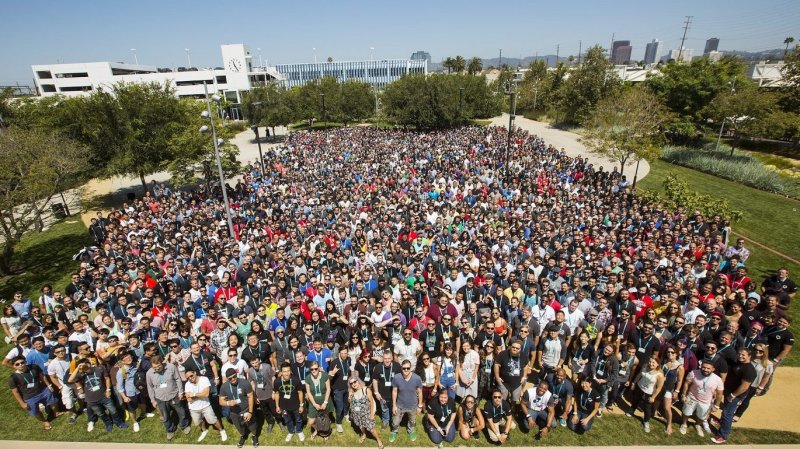
Above: The employees of Riot Games .
GamesBeat: I had a strong reaction to the story Kotaku ran about sexism at Riot Games. I doubt you want to comment on Riot and their issues, but I think we’ll eventually get around to a question you can answer here, if you’ll hear me out a bit. They were on a list of companies that won awards for having the best workplace, a great culture, a very strong culture. They seem to have had this blind spot that came up in that story. They were edgy. They were trying to be different, trying to be unique. I think I remember a line in one of the stories that popped up later, that they didn’t want to be boring like EA or Blizzard.
That’s interesting to me. You guys have your culture. I think you know what your culture is. You probably know who fits and who doesn’t. Do you have to be careful about things like these blind spots, making sure that the culture is really what you think it is?
Brack: I think the answer is always. That’s not only true of culture issues. I think that’s true of really anything. One of the things that, going back to our values — one of them is to learn and grow. In the same way that we’re always trying to iterate our games, always trying to make our games the best we can be, we also actively try to think about how to improve the culture and how to actively work on improving the culture in the same way we improve our games.
I think about some of the issues in the industry that have come up. There’s a lot of talk around different issues, and there should be. The tech industry does not have a stellar reputation in certain areas where you’re representing the underrepresented. We’re trying to take steps forward with the underrepresented. Personally that’s a very important mission for my team, and an important mission for me going forward as well.
I don’t think anyone really wants to be a jerk to other employees. No one gets out of bed wanting to be a jerk. They want to try to do their best thing. But a lot of it is education. A lot of it is having specific things that we do in terms of trying to manage that. We did a — I don’t remember what we called it last year, but we’re calling it the Diversity Nexus next year, this safe space at BlizzCon for different LGBTQ groups, for different women’s groups. Anyone who feels like they need that space.
We have a LGBTQ council at Blizzard. We have a women’s council at Blizzard that advises different teams on how they can be better. I think if you look at Overwatch, Overwatch is trying to be an extremely inclusive game. Without commenting on the Riot article specifically — there was a Google story this past weekend, so this is not a thing people are not talking about — our view is that we want to continue improve on the culture in every way that we can, just like our games.
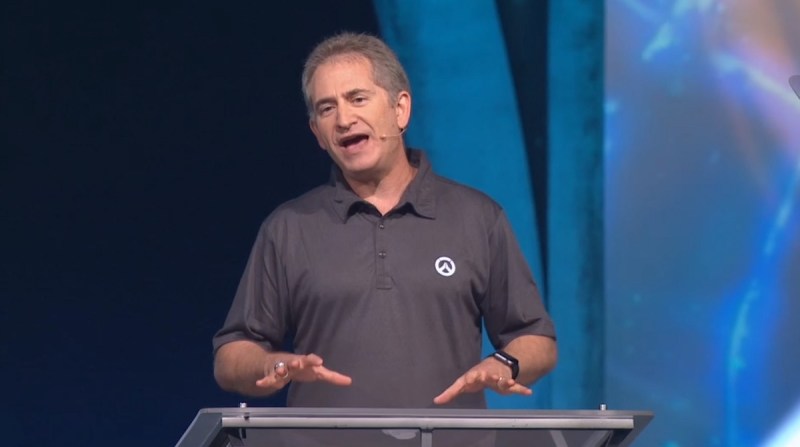
Above: J. Allen Brack is taking over from Mike Morhaime as CEO at Blizzard Entertainment.
GamesBeat: It seems like a common management challenge across all of the industry, to find out what your employees believe your culture to be.
Brack: I totally agree with that. One thing that Mike has had for many years, and I had when I had my old job on the WoW team, was a dropbox that could be anonymous. Anyone who wanted to let me something — Mike had the same thing, so that employees could email him. We do an annual employee opinion survey that’s anonymous, to really get at the truth of what people think when they have no reason other than try to articulate how we should make things better.
GamesBeat: When it comes to diversity, the thing that seemed obvious to me was that Blizzard stood out. Mike spoke up and put himself out there a couple of times, talking about, “Can we get along better? Can we behave better?” Trying to lead gamers in that direction at times when it seemed a little scary to do that.
Brack: I agree. This is an important issue for me. I grew up in a household where Gloria Steinem was one of the patron saints of the Brack family. Not only are we going to continue to talk about the things that Mike has done up to this point, but we’re going to push even more going forward.
GamesBeat: If you think about how far back this goes, where do you think it comes from? In Mike, did you see where some of that came from for him personally? Did he try to instill the management team with some of this core belief or core concern for things like diversity?
Brack: I don’t recall us ever talking about why this was important to him. We always just connected on — this is just the right thing to do, so how do we want to tackle it? Something I talked about with my leadership back in my old job, and that Mike talked to his leadership team around — we would have regular check-ins with different groups.
Going back to your comment on how you know what the culture is, I think you have to do everything you can. But the first thing you have to is make it safe for people to talk to you. If people don’t feel like they have a voice or the ability to speak up in the way you want them to, you can end up being a little blind. That’s where we spent a lot of time and energy, just making sure that there were lots of different avenues, lots of ways for people to come forward. Either named, if they’d like to be, or anonymous if they would not.
GamesBeat: Have any employees come to you and asked, “Hey, do you believe the same things that Mike does?” Especially on this front, or across a lot of other things. Do you feel you’re different in some way too?
Brack: On this issue specifically, there have been people who’ve reached out to other team members or other leads on the WoW team to say, “Where is J. on this type of issue?” I haven’t had anyone specifically come to me and ask what I think. But I did wear a special pin during my opening ceremony piece last year at Blizzcon. That probably gave me some intentional and unintentional credit.
In terms of how I think — Mike is a great human. You’ve known him for a very long time. It’s easy to see that he’s just a good person. He’s very values-driven. He’s always going to try to do the right thing. He’s been a mentor and a good friend to me for my time here. There are a lot of things in terms of values and how we approach things that are going to be very similar.
The thing that I would say is, Mike has done a great job of getting us to this point. One thing we’ve talked about internally is wanting Blizzard to outlive all of us. That’s something Frank has said very passionately. If you think about Disney and the legacy it has left — I don’t think Walt Disney could have ever imagined what Disney has become. But there is this thought of, how do we let Blizzard IPs, Blizzard stories, Blizzard characters, and Blizzard games, present and future, outlive all of us?
In order for that to happen, Mike and everyone else has to move on. Going to back to the idea that Blizzard is bigger than all of us — that supports the idea that eventually all of us will move on and we want Blizzard to have a life beyond that.
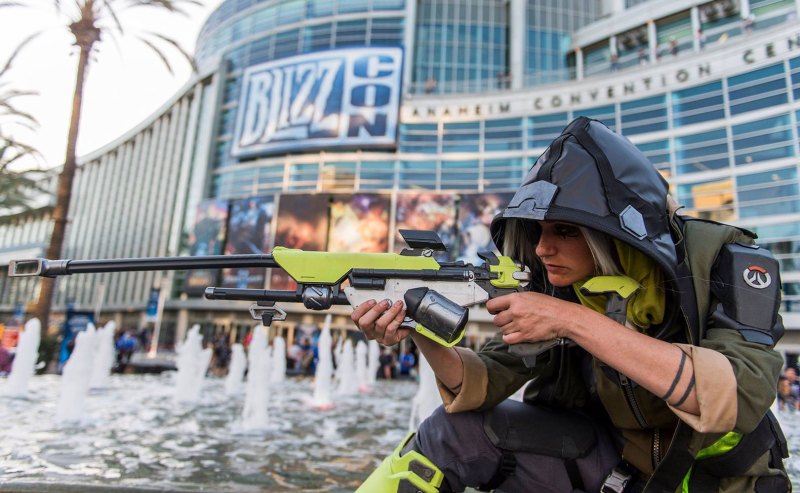
Above: Overwatch is one of Blizzard’s big hits.
GamesBeat: I don’t know if the comment about how Blizzard is boring — the one that surfaced amid the Riot stuff — was ever something you had to address before. I think of game companies as exciting places to work, but when they get big, I don’t know what they’re like.
Brack: Obviously I have a different view. I think Blizzard is awesome. I’ve been here, like I said, almost 14 years. It’s a great place I love. I love the games. I love the people. I love the values and the things we’re trying to do. The level we’re able to operate at is amazing. That’s my review. [Laughs]
GamesBeat: I always thought it was a painful culture in some ways, in that you work very hard on your games, but if they didn’t meet the standards you had, you’d kill them. I thought about how sad that would be for the creators who work so hard on something, to have it killed. Have you had to come to terms with that yourself?
Brack: Every game maker wants to have their game ship. Any creator, really. We’re talking about game makers, but any creator wants to see their thing come out. I don’t think many people don’t have aspirations to be able to make something that’s truly great. We all aspire to make something great. How you define that can be different from person to person, but it’s so hard. It’s so hard to make something. It’s doubly hard to make something that is great, and that is also very successful.
It’s painful whenever things don’t make it, or when we need to reset, or when we need to come back and come at it a different way. But the highest priority is always trying to make the thing great. That’s what we all know we’re trying to do. There’s emotional pain that you have to go through as part of that process, but everyone has the same goal. Everyone is in line. We all want to make something great. If it can’t be there, if there’s a consensus that it’s not ever going to be there — it’s an opportunity, right? Now you can start working on something that is going to be great.
GamesBeat: I thought it was interesting that Supercell cited Blizzard when it talked about the same kind of culture that they have, trying to iterate like that and kill the games that aren’t cutting it. Blizzard’s culture has spread in some way.
Brack: There are a lot of people who are big fans of Supercell here — not only for the games they’ve made, but the success they’ve had and the cultural pieces that they’ve embraced around iteration. They do a really good job of iterating on their games, just trying to continue to make things better over time. That’s been the model for how the really successful mobile teams have worked. There’s a lot of philosophies on how you want to be successful in mobile, but that rapid iteration, rapid turnaround, is key to all of them.
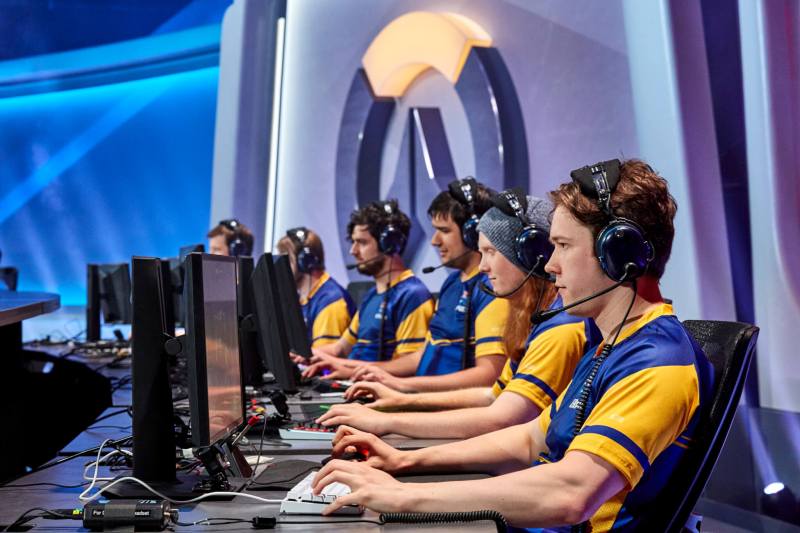
Above: The Overwatch World Cup at Blizzcon in November 2016.
GamesBeat: How do you become more of an expert on multiple categories of games? Especially as you rise as a developer up through making one kind of game, like World of Warcraft. All of a sudden you have to know something about VR or mobile, things like that.
Brack: There’s so much content and so many games. There are very few people who are able to keep up and talk about all different game genres in very deep, meaningful ways. You have to pick the things that are important. I’m a fan of Blizzard. I play all the Blizzard games. I also play a lot of single-player games. I haven’t picked up Red Dead [Redemption] 2, but I’m very excited about that. I play every Call of Duty.
GamesBeat: I finished 105 missions in Red Dead Redemption 2 .
Brack: I’m so excited. We have Blizzcon right around the corner, but as soon as we get through that I’ll be able to take some time. They do a great job. I really like the games they’ve made.
You have to decide how you want to invest. We have a lot of different senior game developers who have a lot of different interests in a lot of different genres. Tom Chilton worked on WoW for more than 13 years. He and I, in my old job, started up a new project that was not something like Blizzard has ever done before. He’s passionate about it. He plays that genre of game very deeply. He understands it, he’s excited about it, and we want to help him do that.
It’s not on any one person to understand every aspect of the industry. If you think about the announcements we made as part of the transition — Ray Gresko has a very deep well of experience in different kinds of games that he’s made. He was the first employee for what eventually became Hearthstone. He made Diablo. He made Overwatch. He’s now the chief development officer. He also has a history before Blizzard of making excellent games.
Then you have Allen Adham, the original founder of Blizzard, who’s come back after a 15-year break or so. He’s also really hungry and really passionate about different types of games as well. There’s a lot of experience in different types of games at the leadership level to help make decisions.
GamesBeat: I enjoyed interviewing Allen all those years ago.
Brack: Yeah, he’s a super sharp guy.
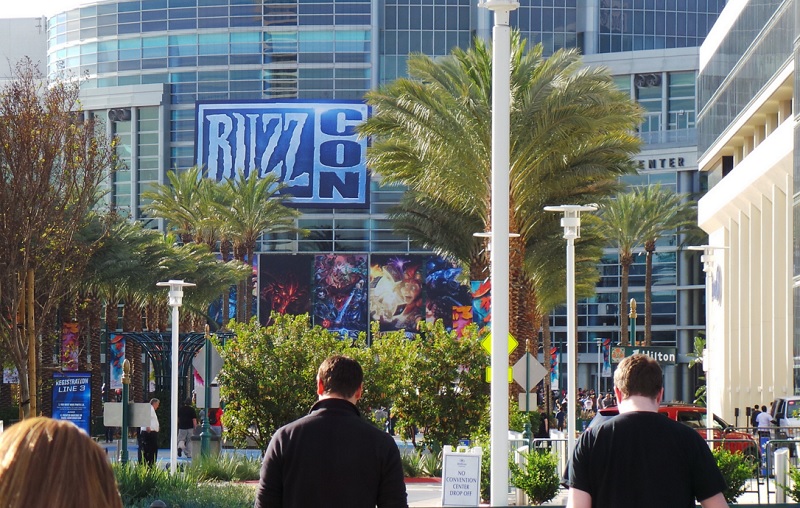
Above: Blizzcon is a celebration of all things Blizzard.
GamesBeat: As far as where you would like to take Blizzard, what thoughts have you had about that? What kind of mark do you want to make on Blizzard? Where do you want to see Blizzard grow?
Brack: Going back to this theme of Blizzard as bigger than all of us, it’s to make sure that the games and the franchises and the characters and the IP we’ve been able to create continue. We think about a lot of the different IP that we have. We feel like there are lots of different games that can exist in each of those IPs. We feel like there’s a lot of characters and fertile territory for new types of experiences.
Take Overwatch as the most recent IP we’ve released. We think of Overwatch, a game that everyone knows today, as being a very small part of what the Overwatch ecosystem could be. We think that’s true for all of our games. If you think about Warcraft III and World of Warcraft, those are very different gaming experiences. They appeal to different people. But there’s a lot of the same story, characters, and lore.
Continuing that forward in an awesome, healthy way is number one. Blizzard is very much known for making great games. It’s ready when it’s ready. Gameplay first. Those are things that, culturally and values-wise, are just as important and just as relevant. And then we have aspirations for how things can grow beyond the video games we’ve done. If you think about the Warcraft movie where we partnered with Legendary, or different types of published works — books or comics or cookbooks or pop-up books — we have aspirations to grow all those things. They’re ways for players and the community to engage with that stuff beyond just the traditional games.
Hopefully we’ll do a lot of the things that Mike has done, a lot more of the things that Mike has done. We have more games that we’re making today than we ever have at any point in Blizzard history. The future gaming slate and the current gaming slate, I’m super excited about them.
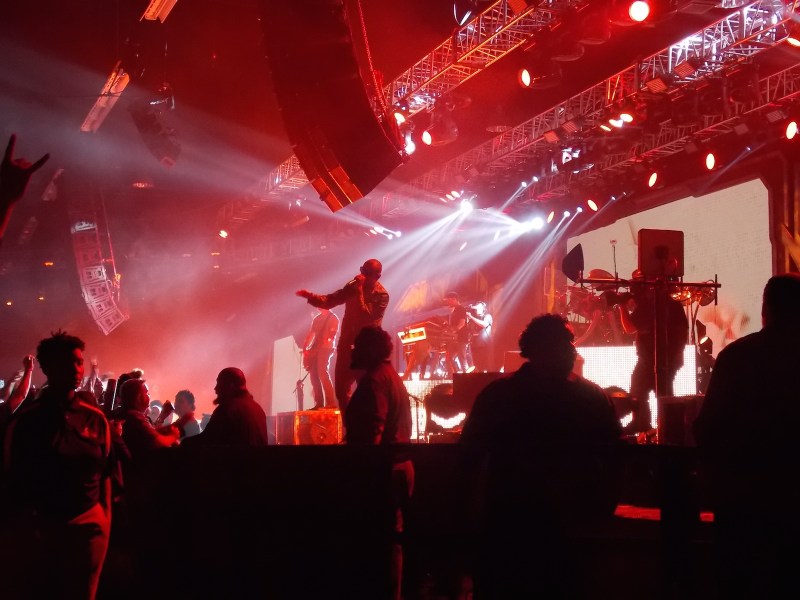
Above: Linkin Park closed out Blizzcon with an hour-long concert.
GamesBeat: It seems like one of the things that goes with the iteration that you guys do, not shipping things until they’re ready, is that you’re probably going to be late to a lot of things. You might be the last company that does a VR game, something like that. I don’t know if a sense of urgency is there at Blizzard, what that feels like. Do you wonder about that, whether you should think about being first sometimes?
Brack: We don’t think of ourselves as early adopters. You can be very successful as an early adopter. But WoW was not the first MMO. Warcraft was not the first RTS game. Our place of excellence is in looking at things that have been done and trying to figure what the Blizzard take on it would be. That requires a lot of iteration and a lot of innovation. It’s just as hard as being an early adopter, but that’s not what I would consider part of our core DNA.
Adham has something he says. You don’t want to be the first person to do a thing. You want to be the second. I don’t know that we’re going to be the second on any of those things, but that’s his philosophy on that type of stuff, and I tend to agree with him.
GamesBeat: On something like battle royale, what kind of discussion have you had about that?
Brack: Battle royale is cool. I’ve played a healthy amount of Fortnite. We have people who play loads and loads of PUBG. The new Call of Duty came out with Blackout mode that a lot of people are playing. Honestly I think it’s good. Whenever a new genre or a new kind of gaming experience comes out, it’s great for the industry. It helps the industry grow and innovate. What I want to do as a game creator is make cool stuff, and as a game player I want to play cool stuff. The more stuff that’s being made, we see that as a positive for us and for the industry. In the case of Fortnite, or any kind of genre-defining game like that, something that’s clearly growing the industry, that’s great for everyone.
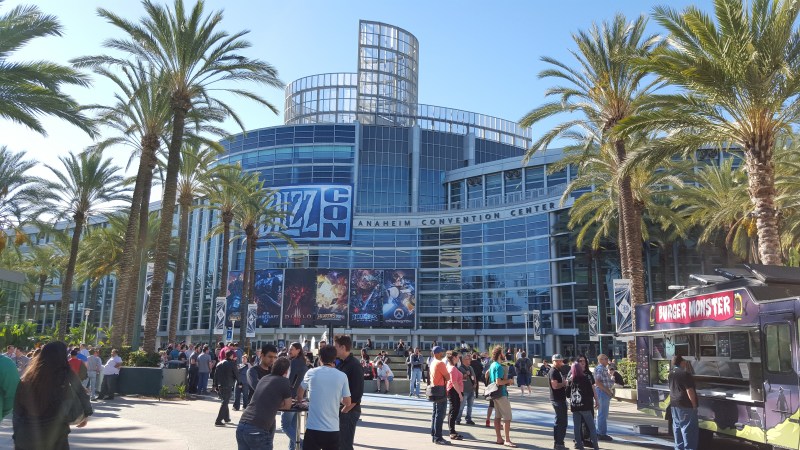
Above: Fans of Blizzard games, including World of Warcraft, will gather for Blizzcon this week.
GamesBeat: How are you guys sending a message out to the fans at Blizzcon?
Brack: Blizzcon is a huge event for us. We’re super focused on that right now, spending a lot of time making sure everything is going well. The teams are out setting up machines and making sure that when the doors open on Friday morning, everyone has a great experience. We’re iterating on all of our announcements, everything we’ll talk about.
We think about Blizzcon as the physical manifestation of the Blizzard community. We treat it very seriously and very passionately. It’s an awesome thing, a lot of opportunity for us to connect with players and for us to experience the positivity that comes with the games that we’ve been fortunate to create.
The amount of love and energy that’s at Blizzcon is frankly like nothing else I’ve ever experienced. I come away from Blizzcon exceptionally excited every time we do it. People are so excited, so happy, so complimentary, so generous with their time and with the love that they have for everything we’re doing. For just about every Blizzard employee, it’s a ton of work, but it’s one of the most rewarding things we do.
GamesBeat: Do you have to go out there and say, “Hey, I’m not Mike, but you don’t have to worry, Blizzard is still Blizzard”?
Brack: I do. [Laughs] Just like that actually. It’s a tall order. Mike is such a good human. He’s a legend. He’s sort of transcended, in the game industry, what it means to be a normal CEO. It’s a huge honor and hugely humbling to follow in his footsteps.
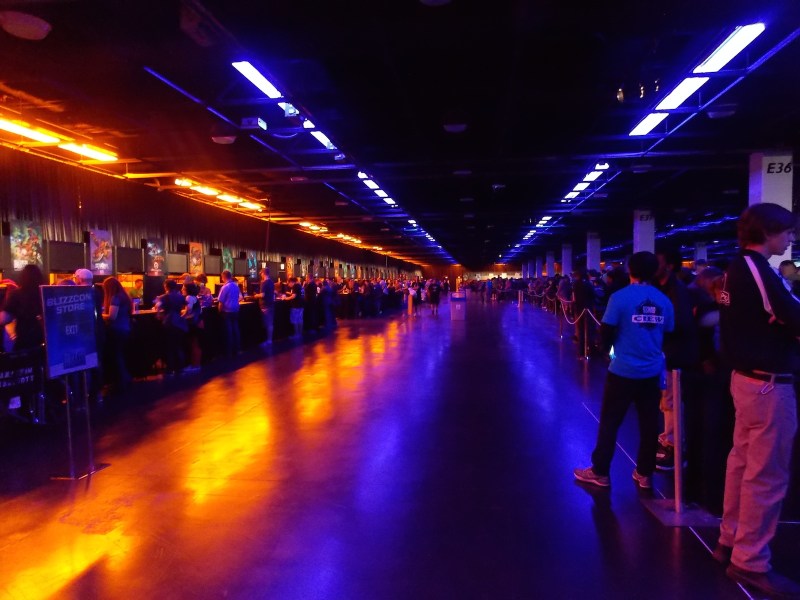
Above: The line was already a few hours long the night before the show at Blizzcon 2015.
GamesBeat: How do you feel about some of the industry-wide things you’re involved in, like the Fair Play Alliance?
Brack: One of the things that we’ve done over the years is partner with different groups and different charities to take on different things we believe in. I think I’m going to look at Rob and talk very slowly, but I believe we already announced the amount of dollars we did for the Overwatch breast cancer charity? That was a huge amount of money that the community raised in support of that with the Mercy skin and Mercy merchandise. The charity aspect is a big part of what we’ve previously announced at BlizzCon. There will be another announcement there as well.
As far as the Fair Play Alliance, we have a panel at BlizzCon this weekend — “Play Nice, Play Fair” — and that will go into a bit more detail around specifically what Blizzard is trying to do in that area.
GamesBeat: Do you have to help decide which characters to nerf in Overwatch?
Brack: [Laughs] That is not part of my mandate. I certainly have opinions. But I’ll leave that to the data scientists and the game designers and the game directors to ultimately make the right decisions. Overall I’m very comfortable with that. I was partnered with Jeff Kaplan back when he worked on Burning Crusade and Wrath of the Lich King, and then Tom Chilton for many expansions. Learning how to have a player opinion, and then a game developer opinion, that’s an important skill for anyone who works on games. How to understand your own view versus the — when you’re speaking as a player and when you’re speaking as a developer.
GamesBeat: How are you tapping people like Allen Adham and Mike Morhaime as far as advice going forward?
Brack: Allen, I’ve been lucky enough to work relatively closely with him since he returned back in 2016. He’s currently in charge of several new titles that he’s working on and has dedicated teams working on making those games great.
One of the first things I did in my new job was say, “I really want to emphasize the product-level expertise at the leadership level.” Promoting Ray Gresko to chief development officer and then adding Allen to the core leadership team, that was one of the first things I did. Mike is going to be an ongoing advisor. He’ll be with us for an indeterminate amount of time, but I think a long time, helping shepherd the company and make sure the right things happen.
GamesBeat: We haven’t talked too much about games yet. Do you have any favorites right now? Blizzard and otherwise.
Brack: The thing I’m probably most excited about — at Blizzcon we have all the Blizzard games doing all their announcements. I’m fortunate to get to do at least one announcement during BlizzCon, which is very cool. I love all the Blizzard games equally. I love all my children equally. [laughs] Even though I worked on WoW for a very, very long time, I’ve been a player of all Blizzard games past and present.
Like I mentioned, the game that came out this week is Red Dead and I’m excited about that. That’s probably the next game on my plate. I just got little bit in, and then I started the ramp-up for BlizzCon and everything that needs to happen, everything with the transition. It’s been a busy month or so. I’m in week three or week four, whatever week it is? There’s a lot to learn, a lot to catch up on.
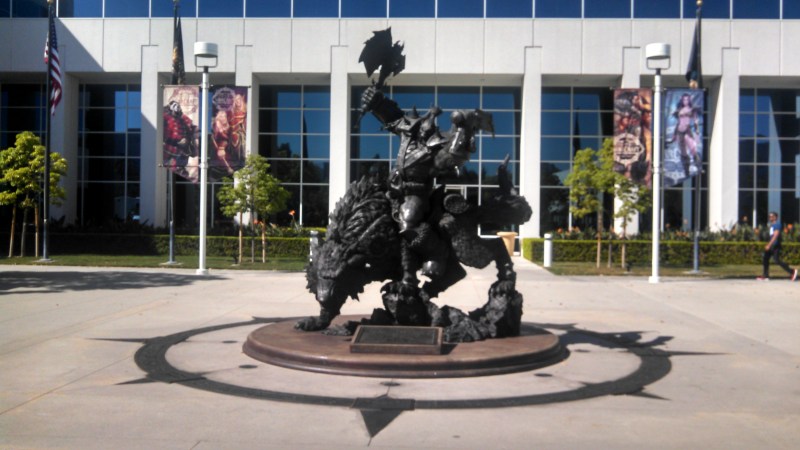
Above: An orc rider guards the door at BlizzCon headquarters, surrounded by a compass rose of the company’s core values.
GamesBeat: Have you had to make any big calls so far? “The buck stops here” kind of decisions?
Brack: The biggest one, honestly, is what we wanted the leadership team to look like. Deciding that Ray was going to be the right person to run development, and that I really wanted Allen’s voice as part of our leadership going forward, that was probably the first big decision, but also one of the most important.
I really think that if you have the right people in the right positions, and then you have leadership alignment, you solve so many problems about how to move things forward. One of the things I over-index on is leadership alignment. I spend a lot of time over-communicating and over-talking around what our goals are and what we’re trying to do to make sure we’re all moving in the same direction.
Moving Ray into his new position, and then me coming into my new position, the next thing was — we both had jobs before. I was the executive producer for World of Warcraft and Ray was the executive producer for Overwatch. Who should have those jobs? But those are both relatively easy. We have successors ready for those jobs now. That was the next decision, but it was a lot easier.
GamesBeat: You have to keep on grooming people the way Mike did.
Brack: It’s super important, right? Your eyes are always bigger than your stomach, going back to the things you want to do and the things you can do. There are a lot of great ideas at Blizzard. The amount of talent we have to execute on those ideas, that’s always going to be the limiting factor. Thinking about how to train leaders, the next generation of leaders, the next next generation, and so on, that allows you to do more things in the future.
